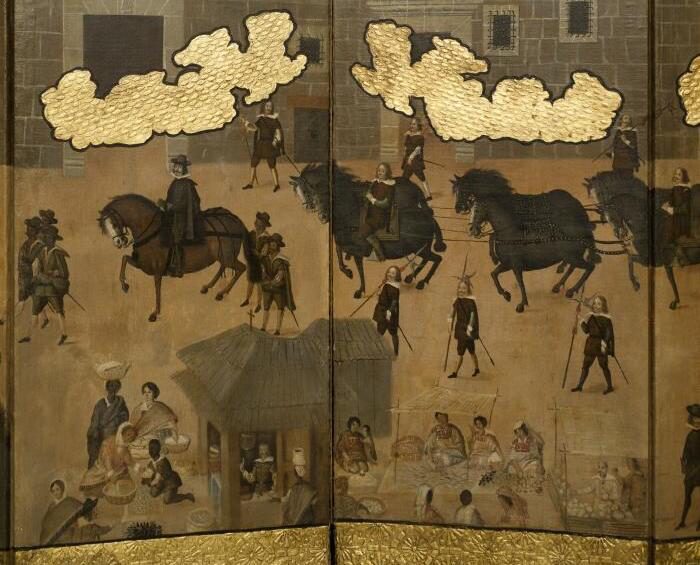
Accounts of Slavery: Money and Mobility among Enslaved People in Seventeenth-Century New Spain
Assistant Professor of History, University of Houston Norah L. A. Gharala
September 21, 2021 · 5:00 pm—6:30 pm · Zoom
Program in Latin American Studies

The transpacific galleon trade enriched Mexican merchants, who relied on enslaved and free dependents to manage merchandise and cash. Hundreds of pesos routinely moved in the pockets of enslaved people as they traversed baroque Mexico City. This talk examines lawsuits among merchants to extract fragmentary data on enslaved people trafficked through Asia to Mexico and their involvement in merchant networks. Entrusting sums of money to certain members of their households, enslavers structured hierarchies of dependents. Men from East Africa and South and Southeast Asia received money and mobility in exchange for their service. The process of distributing funds became one of making dependents and bolstering the power of enslavers to determine the prestige and compensation of particular tasks. For enslaved men, handling money on behalf of a merchant represented a mark of both autonomy and unfreedom.
ABOUT OUR PRESENTER:
Norah L. A. Gharala is an Assistant Professor in the Department of History at the University of Houston and holds a Ph.D. from The Johns Hopkins University. Professor Gharala is the author of Taxing Blackness: Free Afromexican Tribute in Bourbon New Spain (University of Alabama Press, 2019). Dr. Gharala’s current work explores how people with East African origins experienced slavery and formulated ideas about freedom as they moved among the ports and cities of the early modern Iberian empires. With Dr. Guillermo de los Reyes, Dr. Gharala leads a digital project focused on people enslaved on the properties of Hernando Cortés. Dr. Gharala serves as a faculty mentor in the Mellon Research Scholars Program and other initiatives to promote undergraduate research at the University of Houston.
Pre-registration is required.
This virtual event is free and open to the public.















